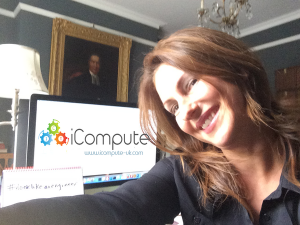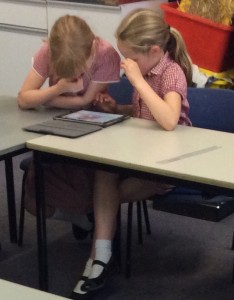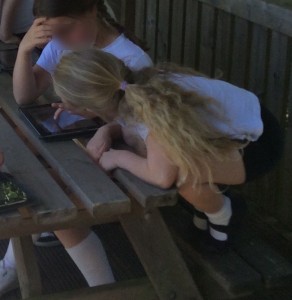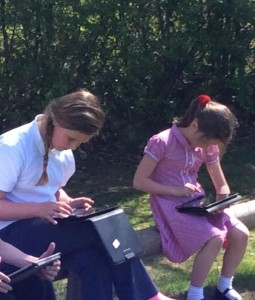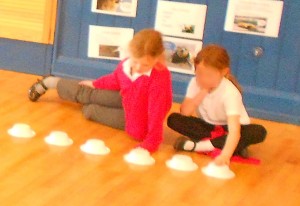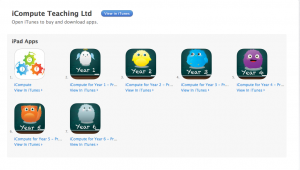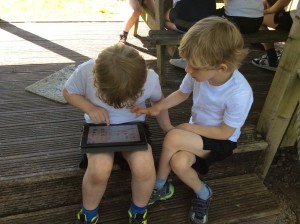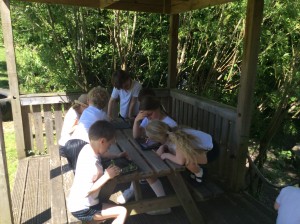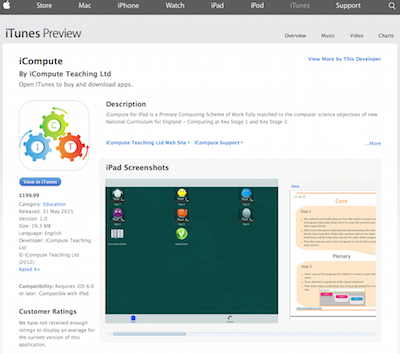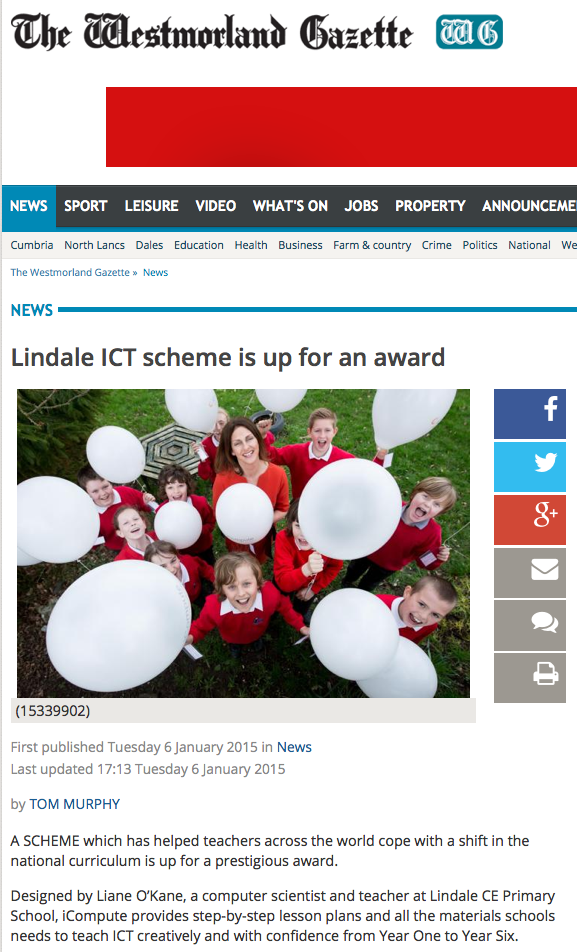I’m not cut out to be a participant in online social media campaigns. I’m a Computer Scientist and a teacher. Case in point: I’m having a touch of angst about a selfie I posted on Twitter yesterday to celebrate Ada Lovelace Day. I’m now wondering whether I’ve addressed sexism in the technology industry or perpetuated it?
Being a graduate of computing science in the 90’s where I was one only one of three women in my year and now as a teacher of computing, I was thrilled to see that #AdaLovelaceDay was trending on Twitter yesterday. I had just written a computing unit for primary pupils featuring her contribution to history as the worlds first computer programmer as part of my primary computing scheme of work. I then saw that it was being celebrated by thousands of women around the world in technology/science/engineering/maths posting photographs of themselves at work with the hashtag #iLookLikeAnEngineer. I joined the many women keen to dispel the stereotype of what constitutes an engineer – in my case a software engineer – by adding my photo.
All good. Except that I then spotted the BBC headline “‘Too hot to be an engineer’ – Women mark Ada Lovelace day”. The connotations of that headline and my contribution marking Ada Lovelace Day did not sit at all comfortably. Some posts on Twitter, by women, added to my unease: asking whether women posting images of themselves inevitably focused the conversation towards looks, thus perpetuating perceptions of women in technology. True, if that’s what is is about. But it’s not. Note the quotes in the headline – ‘Too hot to be an engineer’. That is a comment made by male colleagues to a female software engineer after she took part in a promotional campaign for her company. To put it diplomatically, they questioned whether her image fit that of a ‘typical’ engineer and suggested that people would find it unlikely that she was one. The Twitter campaign, #iLookLikeAnEngineer, has taken flight because women working in STEM (science, technology, engineering and mathematics) want the world to see that women are engineers – in my case a software engineer.
I’m not interested in showing men that I’m an engineer because I have never, in all my many years in the computing industry, encountered what I would call sexism. I’ve never missed out on a job, had my contributions dismissed nor been promoted because I’m a women. I’ve been mistaken for the tea lady in meetings but I didn’t get hysterical about it – I simply spoke with some authority on my subject and they no longer expected a milk with two sugars. I’ve also been asked, when taking notes, if I was writing a shopping list for making my husband’s dinner. That was a joke and I laughed. We women need to lose the silicone chip on our shoulders. They’re not out to get us and we’re not posting pictures of ourselves to look good.
I participated in the campaign because I’m a teacher and I want more girls to take STEM subjects. I want girls to know that they won’t be the first woman in technology (thank you Ada Lovelace) and that there are lots of us out there continuing to make a contribution. A contribution that we’d love them to be a part of. So girls, here is what an engineer looks like:




